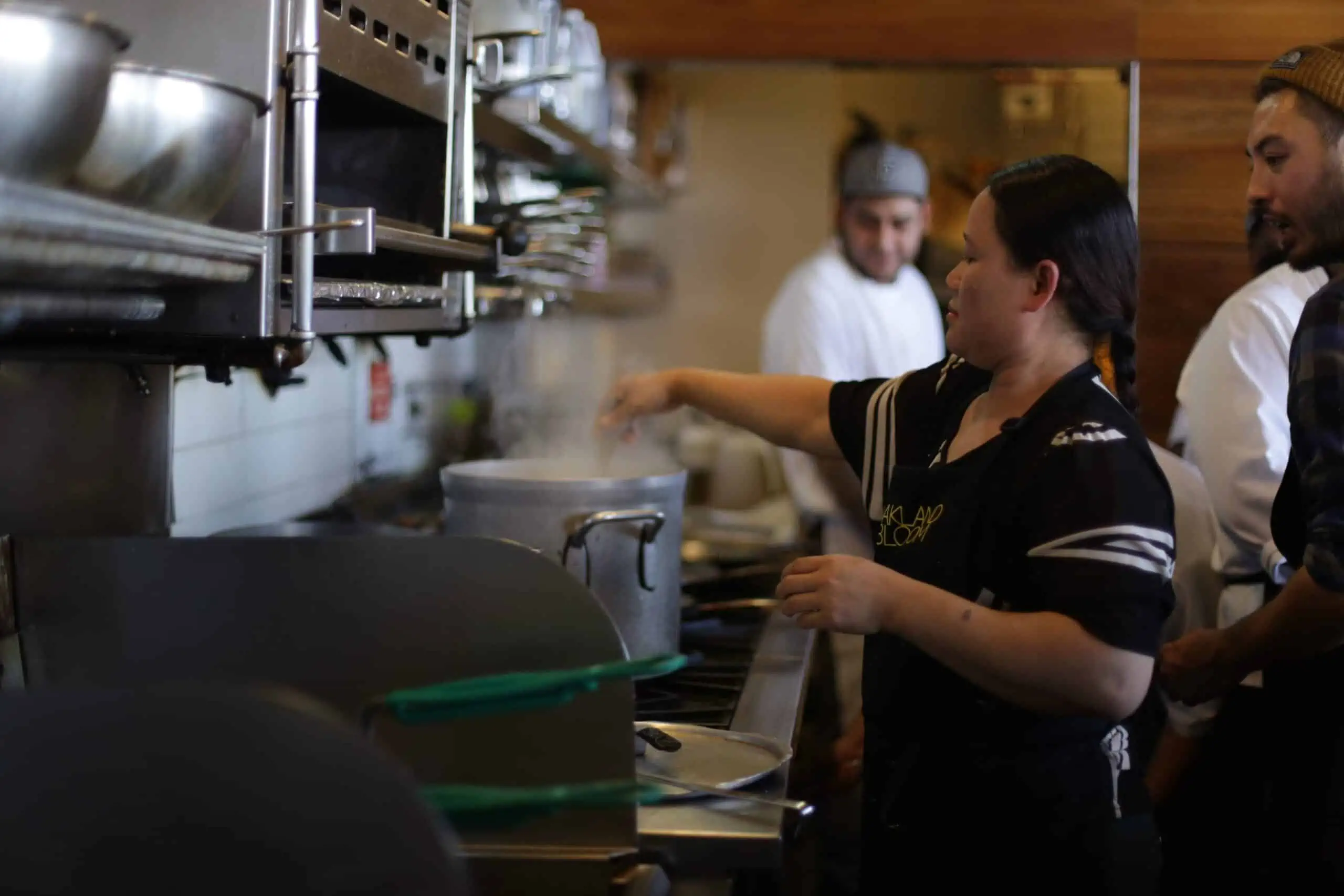How Oakland Bloom Empowers Immigrant and Refugee Chefs
“Food is a powerful connector across communities, to lands, as well as to one’s own health, expression, home, lineages, and identity. But the food industry is also built on systemic extraction, appropriation, and exploitation, particularly impacting poor and working-class people of color and immigrants,” says Diana Wu, director of Oakland Bloom, a non-profit in Oakland, California, that aims to chip away at that system.
Oakland Bloom, a grantee partner of the WES Mariam Assefa Fund, works to advance economic equity and create pathways to business ownership for refugee and immigrant chefs in the Oakland area. Most of the organization’s participating chefs are women of color, mothers, and the breadwinners in their families. Additionally, many are learning English or have an immigration status that makes it difficult for them to work. Through its paid training opportunities, a yearlong food business incubator program, and opportunities like pop-ups and catering jobs, Oakland Bloom aims to shift the historically exploitative nature of the food service industry to one that is healthy and equitable and accessible to traditionally excluded communities.
Oakland Bloom first received a grant from the Fund in 2020 to build out a collectively owned commissary kitchen-restaurant in partnership with worker-owners and other community organizations. At the time, during the height of the COVID-19 pandemic, no one knew how or when restaurants would be able to reopen and resume business. But Oakland Bloom collaborated with local community partners to respond to the situation strategically, and the restaurant, named Understory, recently celebrated its two-year anniversary.
“With Understory, we are working to create a collective kitchen community and sustain alternative models that support ownership pathways for working-class migrant and BIPOC chefs,” Diana says.
As Diana reflects on the first two years of Understory, she attributes its success to the steady commitment of the collective. Months before opening, the team met weekly to establish operating principles and what collective leadership should look like, in addition to moving the day-to-day work forward. With Understory, Oakland Bloom is developing a model for interdependence and partnership in the community alongside chefs in Oakland Bloom programs. However, there are always challenges that come along with building a sustainable, values-aligned business.
“A cornerstone of this work is ensuring a loving multicultural community, which requires strong communication norms and navigating conflict,” Diana shares. “We are working to build a community that in many ways operates against the grain of the food industry, which is a lot of work, but we are all learning and unlearning as we go.”
Diana joined Oakland Bloom in 2019. She was initially drawn to the organization through its community organizing efforts in Oakland Chinatown. At that time, Oakland Bloom was part of a network of merchants and community organizations working with local merchants to address displacement. The network focused on how the health department had been targeting Oakland Chinatown food businesses, disproportionately inspecting them and imposing penalties. Confronting this involved a mix of researching, hosting dialogues between merchants and health department officials, and planning initiatives to support neighborhood businesses, Diana says.
Looking ahead to Oakland Bloom’s future evolution, Diana is enthusiastic about the organization’s incubator program, which supports chefs as active participants and alumni. Oakland Bloom’s numerous chef entrepreneurs are growing unique food businesses and have moved to Oakland from various home countries, including Bosnia, China, Palestine, Thailand, and more.
“I’m excited to explore the possibility of implementing guaranteed income models with graduates to ease economic pressure. This can also contribute to broader policy conversations with relation to universal basic income,” she says. Universal basic income, also known as guaranteed income, is the concept of a regularly paid salary from a government to its citizens. Some countries and individual states in the United States have successfully piloted this type of program, but it’s currently uncommon.
Finally, Diana shares her excitement about opportunities to connect Oakland Bloom’s chef community to events and affordable kitchens and spaces that celebrate working-class immigrant communities and communities of color via cultural work, community network-building, resilience, and the idea of “revitalization without displacement.”
In April 2023, Fund team members visited Oakland Bloom at Understory. From left to right: Diana Wu, director of Oakland Bloom, Silan Akgul, Senior Communications Manager, Shevani Khatri, Program Associate, and Lea Tienou-Gustafson, Senior Director of the Fund.
Stay in Touch
Thank you for your interest in the WES Mariam Assefa Fund. We’ll share updates on the Fund’s efforts, what we’re learning, and opportunities through our email list.

